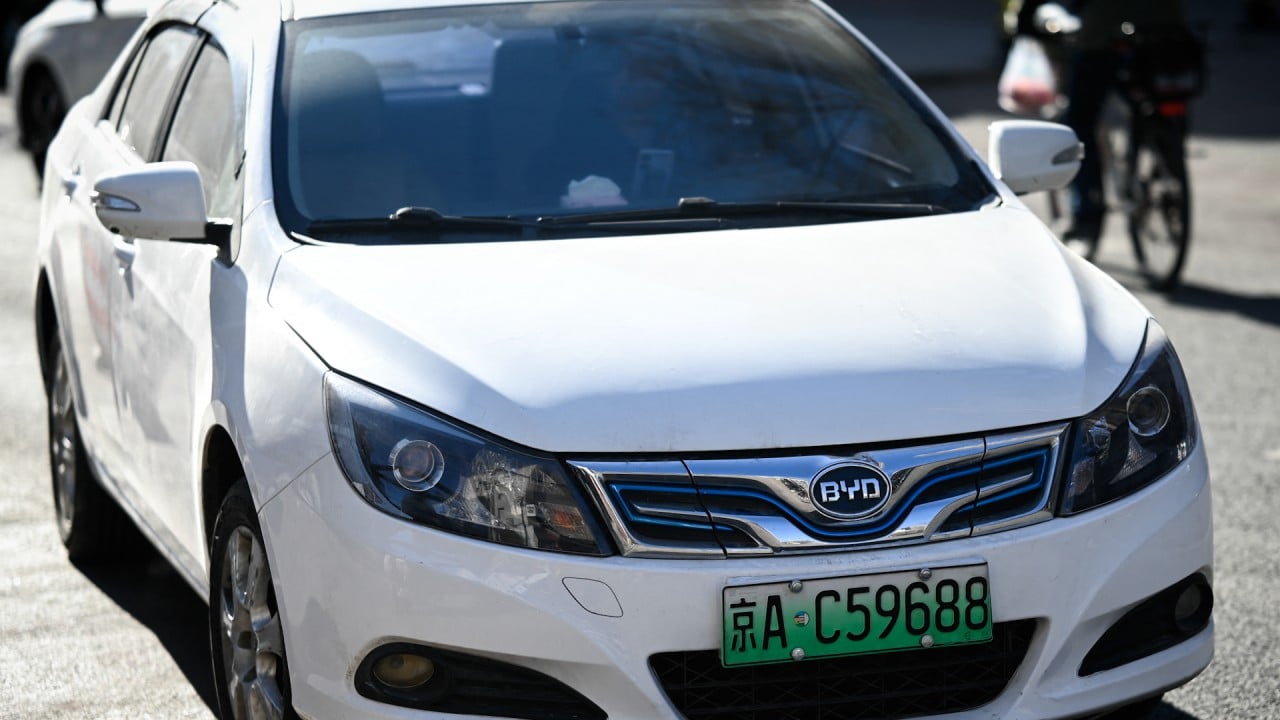
China to solidify its position as world’s top car exporter in 2024 as it banks on manufacturing heft: UBS
- Battery-powered vehicles will account for 30 per cent of China’s total car exports of 5 million units this year, according to a forecast by the Swiss bank
- Chinese carmakers exported 4.4 million cars in the first 11 months of 2023 versus 3.99 million units by Japanese assemblers
The Swiss bank said Chinese carmakers are likely to brush aside hurdles, such as the anti-subsidy investigations launched by the European Commission (EC) into the country’s electric vehicle (EV) industry.
Battery-powered vehicles will account for 30 per cent of China’s total car exports this year, UBS analyst Paul Gong said at a media briefing on Tuesday.
“Chinese electric-car makers enjoy an advantage in terms of technology,” he said. “Aside from high-performance batteries, they also have good command of some manufacturing techniques, which make production processes simpler and cost effective.”
China was already on track to becoming the world’s largest car exporter in 2023, having exported 4.4 million units in the first 11 months, an increase of 58 per cent from 2022, according to data from the China Association of Automobile Manufacturers.
In the same period, Japanese carmakers, the world’s top exporters in 2022, sold 3.99 million units abroad, according to data from the Japan Automobile Industry Association.
It would be the first time that China, the world’s largest automotive and EV market, becomes the No 1 exporter.
In September, the commission said it would take up to 13 months to assess whether to impose additional tariffs on Chinese-made EVs. Chinese carmakers, which accounted for 8 per cent of the market as of the third quarter of last year, are subject to tariffs of 10 per cent.
Crunch time for Chinese EV makers amid slowing growth, intensifying rivalry
Gong said Chinese-made EVs like BYD’s Seal cars have a cost advantage over Tesla’s Model 3 assembled in Europe. In Europe, the cost of assembling a Seal car would be 25 per cent lower than a Model 3, he added.
UBS also forecast that Chinese carmakers would control 33 per cent of the global market by 2030, nearly double the 17 per cent in 2022.
EV sales in mainland China, where two out of every five new cars are powered by battery, represent about 60 per cent of the global total.
In the fourth quarter of 2023, BYD, which was already the world’s largest producer of electric cars – a category that includes plug-in hybrid cars – outsold Tesla in terms of pure EVs.
The Shenzhen-based carmaker backed by Warren Buffett’s Berkshire Hathaway, handed a record 526,409 all-electric cars to buyers between October and December, edging out Tesla by about 42,000 units, which delivered 484,507 cars in the same period.


